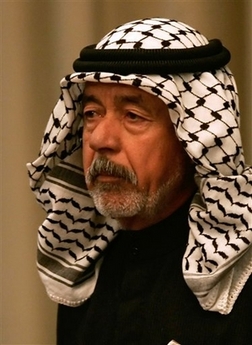Iraq's 'Chemical Ali' sentenced to hang
(AP)Updated: 2007-06-24 16:55
BAGHDAD - An Iraqi court on Sunday sentenced Saddam Hussein's cousin known as "Chemical Ali" and two other former Iraqi officials to death by hanging for their roles in a 1980s scorched-earth campaign that led to the deaths of 180,000 Kurds.
The judge, Mohammed Oreibi al-Khalifa, said al-Majid was convicted of genocide, crimes against humanity and war crimes for ordering army and security services to use chemical weapons in a large-scale offensive that killed or maimed thousands.
Former defense minister Sultan Hashim Ahmad al-Tai also was sent to the gallows after the judge ruled that he had ordered a large-scale attack against civilians and used chemical weapons and deportation against the Kurds.
Al-Tai, who was wearing a traditional Arab robe and a white headdress, stood in silence as the verdict was read but insisted he was innocent afterward.
"I will not say anything new, but I will leave you to God. I'm innocent," al-Tai said as a guard escorted him out of the room after the verdict.
The former deputy director of operations for the Iraqi Armed Forces, Hussein Rashid Mohammed, also was sentenced to death after he was convicted of drawing up military plans and other allegations against the Kurds.
Two other former Iraqi officials - Farhan Mutlaq Saleh, former head of military intelligence's eastern regional office, and former director of military intelligence under Saddam Hussein, Sabir al-Douri, were sentenced to life in prison.
The judge said the charges were dropped against Taher Tawfiq al-Ani, the former governor of Mosul and head of the Northern Affairs Committee, because of insufficient evidence. That decision had been expected as the prosecutor had requested that al-Ani be released.
|
||
|
||
|
|

